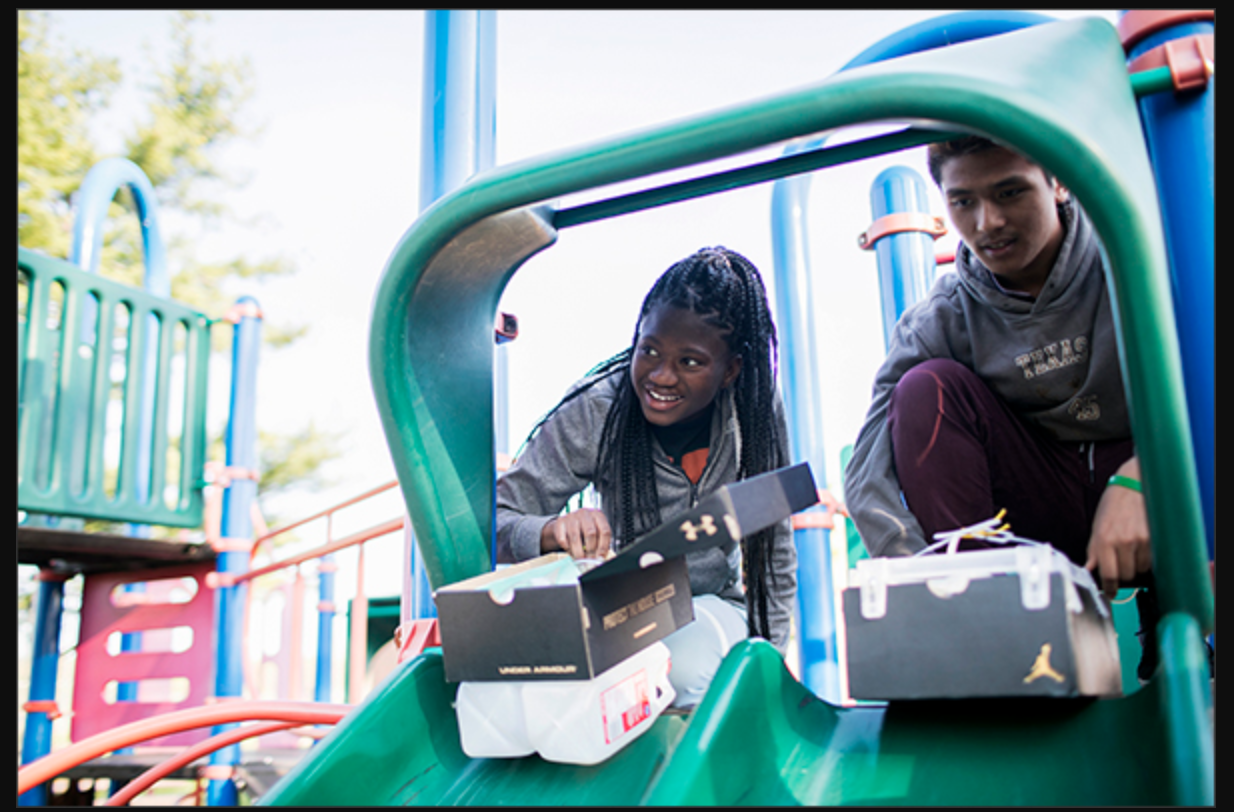NEWS & EVENTS
Middle school to Manufacturing

Middle-schoolers in Ohio are learning math, science and programming — and competing in contests such as MakerMinded to expose them to careers in advanced manufacturing reports Ed Week‘s Benjamin Herold.
Lightweight Innovations for Tomorrow, or LIFT, and partners across the Midwest are developing learning activities and competitions.
At Woodward Park Middle School in Columbus, eighth-graders build machines, seventh-graders code apps and sixth-graders take part in a “trash slider challenge,” writes Herold. “The goal is to use recycled materials to build a vehicle that can transport a two-liter bottle of fluid down a ramp without spilling anything.”
The school uses the Project Lead the Way curriculum, which was developed by a national non-profit to interest students in science, technology, engineering and math (STEM). Students are encouraged to identify a community problem and design a solution.
I wrote about a San Jose high school that uses PLTW in a story on preparing first-generation, college-bound students for high-tech careers. (Go, read it and leave a comment, please.)
This year, Downtown College Prep Alum Rock High students created an experiment that was run on the International Space Station via Quest for Space, designed a “tiny house” for the homeless, competed in robotics, rocketry and engineering competitions and worked with students in China to design an electricity-free air-cooling and filtering system, which they presented at a UNESCO conference. In a BUILD entrepreneurship class, students develop product ideas and pitch them to Silicon Valley professionals.
Most students come from Mexican immigrant families. Once they try engineering, “our students totally get it,” says Katie Zazueta, community engagement director for Downtown College Prep, which runs two high schools and two middle schools. As immigrants, “they come from a culture of tinkering, building, making things work.”
Fernando Lopez, a 2018 graduate, spent last summer working at a civil engineering company, building a network of contacts. A leader of the “tiny house” team, he plans to earn a civil engineering degree, with a credential in Building Information Modeling, at University of California Irvine.
“Working in construction with my dad, I saw a lot of people have back problems because they have to work in awkward positions.” He redesigned a tool called an angle grinder extension to prevent back injuries. His father will try it and give him feedback.
I asked if he would try to manufacture the tool, if it works. “I’m thinking of getting a patent,” said Fernando. It’s Silicon Valley.